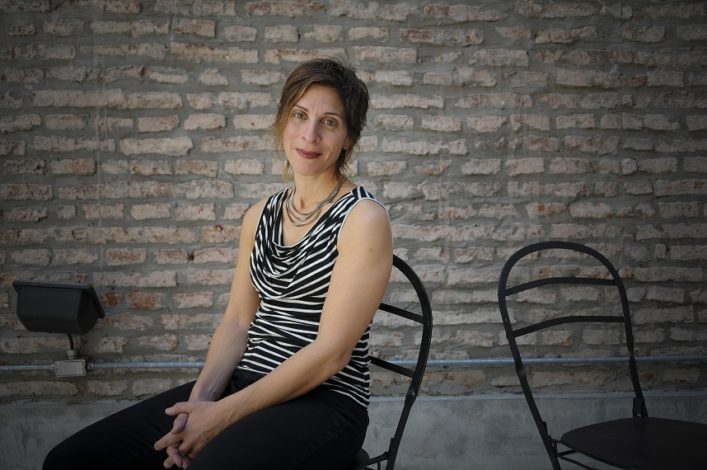
Drawing (on) a decade of climate change in the North
Artist Alison McCreesh’s latest book documents her travels around the Arctic during her 20s. In...
The federal government has decided to appeal a landmark decision by the Ontario Superior Court, which found that restrictions on the activities of charities represented an unjustified infringement of freedom of expression.
“The Government of Canada has identified significant errors of law and has served notice that it will be appealing the decision to address the uncertainty created by it,” the government said in a statement
.
However, in the same breath, the government said it would present legislation this fall to amend the Income Tax Act to “allow charities to pursue their charitable purposes by engaging in non-partisan political activities and in the development of public policy.”
Restrictions on the activities of charities became a lightning rod during the Harper government years, when $13.4 million was spent to audit the advocacy work of charities. Many believed the audits were targeted at groups the Harper government disagreed with — such as the David Suzuki Foundation, Environmental Defence Canada, Equiterre, Ecology Action Centre and Tides Canada.
The Trudeau government campaigned in 2015 on a promise to end the “political harassment” of charities by “clarifying the rules governing ‘political activity.’ ”
While the new legislation will decrease restrictions on the activities of charities, Leilani Farha, the executive director of Canada Without Poverty — the organization that took the charter challenge to court — said she’s “deeply disappointed” with the government’s decision to appeal the ruling.
“The government has … wrested away from us charter protection,” Farha told The Narwhal. “And what their appeal says is that they do not believe that this is a charter issue of free expression and they do not believe charities should have the charter right to free expression.”

Leilani Farha is the executive director of Canada Without Poverty, which took a charter challenge of restrictions on charitable activities to court — and won. But now the federal government is appealing the ruling.
The July ruling by Justice Edward Morgan of the Ontario Superior Court of Justice found the restrictions on “political activities” an arbitrary and unjustified infringement of freedom of expression as guaranteed in Section 2 of the Charter of Rights and Freedoms.
The Canada Revenue Agency (CRA) defines political activity as any activity that seeks to change, oppose or retain laws or policies.
Farha said she questions how much consideration government officials and even other charities in the sector have given to the implications of the appeal for people living in poverty.
“The decision affirmed that poverty will not be relieved in this country if people living in poverty do not have free expression and can not contribute to public policy debate,” Farha said.
“For me it was not just a bad day for democracy; for me, it was offensive what happened yesterday.”
Farha said Canada Without Poverty will fight the case in the court of appeal and to the Supreme Court if it has to.
“This is a huge issue for the country. We’re certainly not going to lie down on this one at this point,” she said.
Andrew Gage, a staff lawyer with West Coast Environmental Law, welcomed the government’s commitment to confirm the right of charities to fully participate in public discourse, but said the government’s appeal of the charter decision “is a step in the wrong direction.”
“Under Canada’s tax laws, charities are very constrained in their public activities, while other organizations that receive more generous tax benefits — such as corporations — remain unrestricted,” Gage said.
“Strong laws against smoking in public spaces, drunk driving and pollution were all proposed by charities, and Canada is strongest when many voices are heard.”
Sidney Ribaux, co-founder and executive director of Equiterre said while his organization refused to be cowed by an audit of its activities, improved legislation is important for the sector.
“Our stand was: we’d rather lose our charitable status than lose our freedom of speech,” Ribaux said.
Regardless, Equiterre pressured the federal government for years to remove the restrictions.
“If environmental groups in the country feel that they can’t say everything they need to say to protect the environment then ultimately we’re not going to achieve our objective,” he said.
“We’d rather lose our charitable status than lose our freedom of speech.” — Sidney Ribaux, Equiterre
The government’s hand was ultimately forced by the court ruling, Ribaux said.
“What they said publicly last night, we’ve been pushing them to say that since they were elected almost three years ago and there’s been huge resistance. The group that brought the ball across the final goal line is Canada Without Poverty with this court case.”
For their part, Canada Without Poverty vows not to let the charter challenge die.
“The government is trying to make this about policy. This is not about policy,” Farha said. “This is about a charter right to free expression. And Prime Minister Trudeau and the PMO can not suddenly decide because they want to that this is not a charter issue.”
Get the inside scoop on The Narwhal’s environment and climate reporting by signing up for our free newsletter. On March 17, federal Conservative Leader Pierre Poilievre...
Continue reading
Artist Alison McCreesh’s latest book documents her travels around the Arctic during her 20s. In...

I’ve watched The Narwhal doggedly report on all the issues that feel even more acutely...

Establishing the Robinson Treaties, covering land around Lake Huron and Lake Superior, created a mess...
